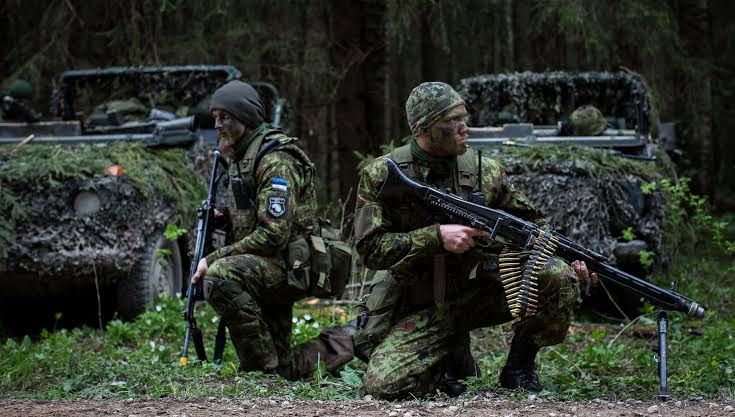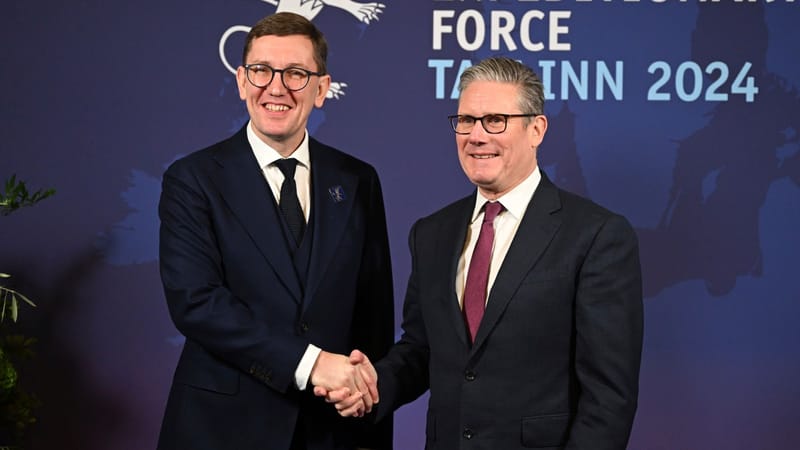Escalating Military Tension in the Baltic Region: A Brewing Storm
The Baltic region faces an increasingly volatile climate as geopolitical issues escalate. With the situation in Belarus teetering on the brink of a crisis and anticipations for resolute decisions from NATO in July, the specter of war looms ever closer to Estonia. The need for readiness to face unforeseen circumstances

The Baltic region faces an increasingly volatile climate as geopolitical issues escalate. With the situation in Belarus teetering on the brink of a crisis and anticipations for resolute decisions from NATO in July, the specter of war looms ever closer to Estonia. The need for readiness to face unforeseen circumstances becomes an urgent priority.
The war essentially arrived on our doorstep with the full-scale onset of the Ukraine conflict on February 24, 2022, when tens of thousands of Ukrainian refugees started to flood our borders and we began organizing aid for Ukraine. Despite this, the tangible military tension remained distant. However, recent developments might suggest otherwise.
Belarusian dictator Alexander Lukashenko recently announced that Russian nuclear weapons are en route to Belarus, raising an alarm. Simultaneously, there have been ambiguous reports about Lukashenko's health. This presents a volatile scenario, where a foreign nuclear weapon arrives in a country whose dictator might be incapacitated or deceased. This power vacuum could be exploited by the Belarusian opposition, despite Moscow's interest in maintaining stability in Belarus. Even though Moscow controls the nuclear weapon operationally, the physical possession could potentially fall into the hands of the Belarusian opposition.
Adding to the tension, the administrative building of Russian oil company Transneft in Pskov Oblast, bordering Estonia, fell victim to two drone attacks on Saturday. This comes in conjunction with reports of other drone attacks in Western Russia. While it's difficult to determine whether these are the handiwork of Ukrainians, such attacks undeniably amplify military tension in the Baltic region.
Although evidence of Moscow's direct involvement remains elusive, it is clear that the Kremlin is interested in fostering instability within NATO's eastern flank countries. The Baltic region's instability is further compounded by a government crisis in Lithuania sparked by a corruption scandal. This, coupled with the broader context of preparations for a Ukrainian counteroffensive, recurring criticism from Wagner group leader Yevgeny Prigozhin towards the Kremlin, and events in Belgorod, paints a picture of rising instability in the Baltic region.
Given the impending NATO summit to be held in Vilnius in July, a region witnessing escalating military tension, NATO faces the pressing call to intensify its military presence in the eastern flank countries and concurrently issue a reassuring message to Ukraine.
The evidence of Moscow's activities may be hard to pinpoint, but it is evident that the Kremlin benefits from instability within NATO's eastern flank countries. For instance, the individual who ignited the Quran in Sweden, which led to a pause in Sweden's path towards NATO, reportedly had direct ties with Russia. Nothing guarantees Moscow won't orchestrate provocations, either within the NATO eastern flank countries or Ukraine, to highlight their unreliability to the alliance. Therefore, we must remain vigilant while maintaining calm and a rational mind. Those orchestrating internal political scuffles should realize that the era preceding the crisis will not return in the near future.




